Morning depression is one of the hardest things someone can go through. Waking up in the morning every day, hoping to have a good day ahead, but instead, you wake up with this inexplicable feeling of dread in the center of your being, that stops you from even having a teeny-tiny positive thought. Experiencing this darkness, day in and day out leads to you feeling scared of even getting up in the morning.
This feeling does have a name, and it is morning depression or diurnal mood variation. Morning depression can be extremely debilitating, both physically and mentally, and is one of the most painful things a person can experience in their life.
What Is Morning Depression?
Morning depression is one of the many symptoms experienced by people who suffer from major depressive disorder; it basically makes your depression symptoms even more painful, worse, and harder to deal with. Earlier this was considered to be a disorder on its own, but now experts believe that it is one of the many symptoms of depression.
Waking up in an extremely sad and dreadful mood every day is one of the biggest symptoms of morning depression, and if you notice frustration, tiredness, fatigue, and anger accompanying it, then chances are, you are in the throes of morning depression.
Related: 5 Things You Should Do If You Feel Depressed In The Morning
What Are The Symptoms Of Morning Depression?
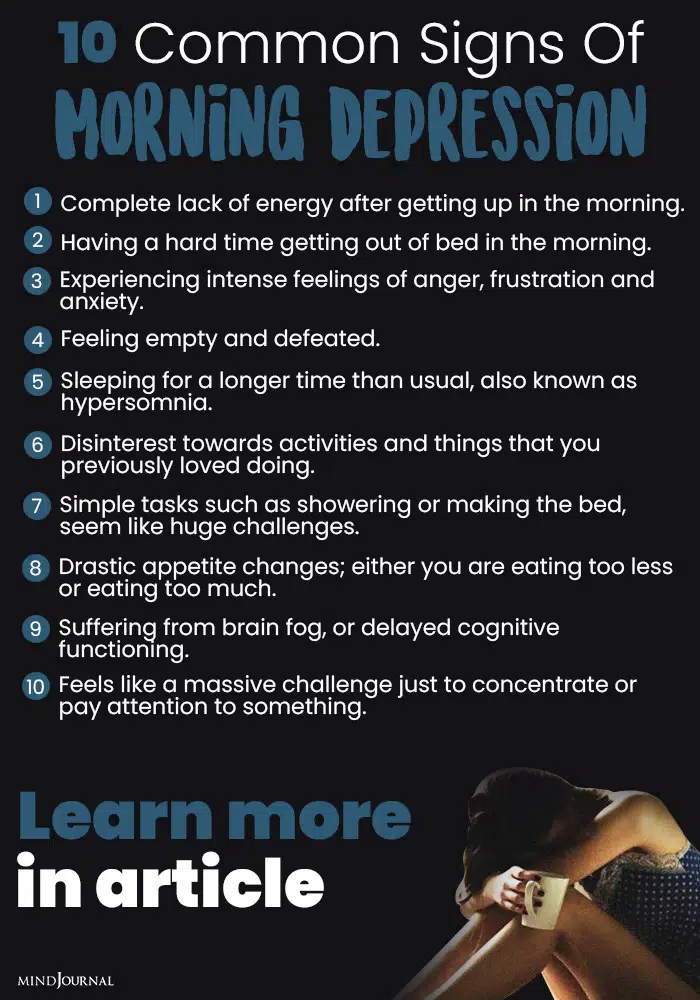
People suffering from morning depression usually have acute symptoms in the morning, such as feeling sad, defeated, and gloomy. But apart from this, morning depression can also manifest in other ways too.
Some of the other symptoms of morning depression are as follows:
- A complete lack of energy after getting up in the morning.
- Finding it extremely difficult waking up in the morning, and having a hard time getting out of bed.
- Intense feelings of anger, frustration and anxiety.
- Feeling empty and defeated.
- Sleeping for a longer time than usual, also known as hypersomnia.
- Disinterest towards activities and things that you previously loved doing.
- Simple and normal tasks such as showering or making the bed, seem like massive challenges.
- Drastic appetite changes; either you are eating too less or eating too much.
- Brain fog, or delayed cognitive functioning.
- Feels like a massive challenge just to concentrate or pay attention to something.
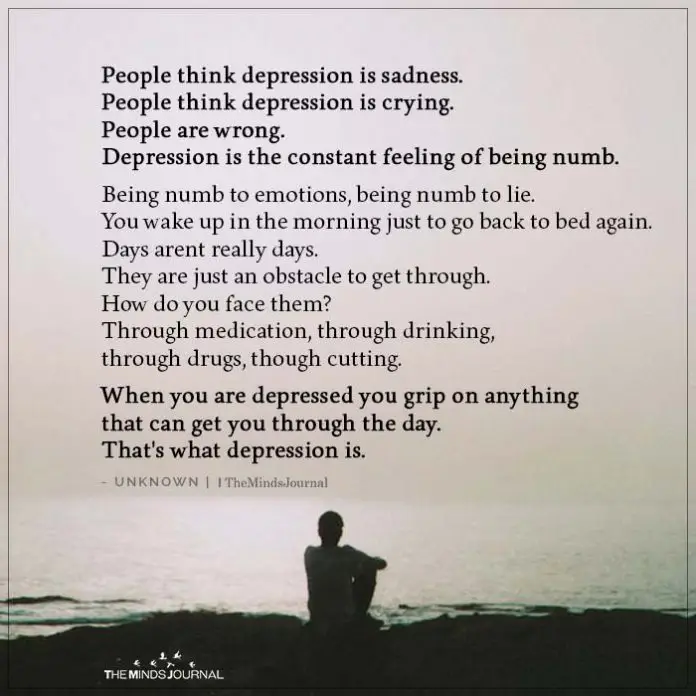
What Causes Morning Depression?
There can be many causes behind morning depression. Some studies show that people suffering from depression tend to have imbalanced circadian rhythms, which leads to disturbed sleep, and this ultimately leads to morning depression. Human bodies have a 24-hour internal clock that helps them feel awake and energized during the day, and feel sleepy during the night. This natural and biological cycle is known as the circadian rhythm.
Your circadian rhythm controls everything, from your body temperature to heart rate, energy to alertness, and thinking patterns to fluctuations in mood. As long as all of these are in a perfect balance, your mood will remain stable, and your health in a good place.
Hormones like melatonin and cortisol work towards preparing your body for important events. For instance, when the sun rises, your body gets busy making cortisol and gives you the much-needed energy to stay energetic and alert throughout the day. When the day is on the verge of getting over and when the sun sets, your body starts producing melatonin, which makes you feel sleepy.
And now, whenever this gets disrupted, the body starts producing melatonin and cortisol at the wrong times, which leads to a detrimental effect on your physical, mental and emotional well-being. Like for example, if your body produces melatonin during the day, you start feeling fatigued, irritated, sleepy, and tired.
Gradually, all this leads to a complete disruption and imbalance in your circadian rhythm and leads to depressive symptoms.
Related: The Difference Between Sadness And Depression
How Can You Treat Morning Depression?
Even though morning depression can be extremely hard to deal with, the good news is there are certain things that can help make things better. Some of the best ways to tackle this are as follows:
1. Talk therapy.
Talk therapy is one of the best ways to deal with morning depression. Talk therapy consists of different approaches such as cognitive-behavioral therapy (CBT), interpersonal therapy, and psychotherapy, and all these methods have been found to be very effective against morning depression. Another approach that also works wonders is combining talk therapy with medication.
Talk therapy aims at unraveling all the issues that keep on bothering you and leads to you feeling depressed; knowing the real reasons behind you feeling this way will give you a lot of clarity and can help you fight this better. Some of the common reasons are unhappiness in romantic relationships, excessive stress at the workplace, family problems, or negative thoughts and emotional patterns.
2. Exercise.
Regular exercise can help you a lot when it comes to dealing with it’s symptoms. Working out for 30 minutes every day, or 150 minutes per week, can tremendously help in reducing and controlling the symptoms of depression. Exercising releases the feel-good hormone, endorphins which help you feel happier and better.
It can also help in reducing insomnia and stressful thoughts, so that you feel more relaxed throughout the day, and have proper, deep, and uninterrupted sleep at night. Regular exercise is not just beneficial for you physically, it can be amazing for you mentally, emotionally, and psychologically.
3. Light therapy.
Light therapy or phototherapy is another one of the most effective ways of treating the symptoms of this mental condition. In this type of therapy, you sit near a light therapy box, and this box produces the kind of light that is almost similar to the natural light outside. Natural light has always been believed to put people in a good mood and this is exactly what light therapy seeks to achieve.
Being exposed to light like this not only elevates and boosts your mood, it also makes you feel optimistic about tackling this. Even though light therapy is mostly considered to be the ideal treatment plan for people suffering from seasonal affective disorder, it can also be immensely helpful for people with depression.
4. Incorporate a morning routine.
Whenever you find it hard to get up in the morning, or absolutely dread it, then build a morning routine that will help you stop seeing mornings as a scary thing. Get up slowly in the morning, and try not to rush yourself or stress yourself out too much. Try not to look at your phone or check emails the moment you get up; take some time to sort out your mind and emotions, and then slowly prepare yourself for the day ahead.
You can do a little stretching and morning yoga to feel rejuvenated and energized, or you can start your day by putting on some calming music while having your tea or coffee by the window. You can also meditate for a few minutes after waking up and start the day in a more mindful and peaceful manner. Build a routine that you will enjoy doing every day, and which will make you look forward to the day ahead.
Related: 8 Morning Routine Habits That Will Make You More Disciplined
5. Look to your loved ones for help.
When things seem too bleak and you feel extremely discouraged, turn towards your loved ones for help, and don’t think that it makes you any less strong; rather it takes a lot of strength and courage to ask for help. If you live with someone, you can ask them to sit with you for some time if after waking up you feel depressed and miserable; a loved one’s physical presence and their company can give you the strength and motivation to get out of bed.
If you live alone, you can call up someone who is close to you, and tell them how you are feeling. They can help you get out of bed in the morning by assuring you that everything’s going to be fine, and also motivate you to take on the day ahead with a fresh and optimistic mindset. People who genuinely love you and care about your well-being will always try to help you as much as they can, so lean on them for support whenever you feel too lost and pessimistic about yourself and your life.
There are a few more things you can try out when it comes to dealing with morning depression:
- Going to sleep and waking up at the same time everyday. This keeps your natural body clock in perfect rhythm, and ensures that you sleep well, and stay healthy.
- Try not to take any long naps during the day.
- Eat healthy, nutritious food throughout the day, and stay away from unhealthy, processed and sugary foods.
- Avoid tobacco, alcohol, and caffeine before going to sleep, as these substances can severely disrupt your sleep and might even keep you awake for the whole night.
- Sleep in a cool, dark room, and refrain from using any kind of electronic devices before going to sleep. Instead read a book, listen to some good music or do some relaxing stretches that will relax you and help you fall asleep faster.
Related: 5 Ways To Help Someone Who Is Dealing With Depression
Takeaway
Morning depression doesn’t have to decide how you should live your life, or how you should feel every day. Even though fighting something like this takes a lot of strength, that doesn’t mean you can’t beat it. You are a strong person with a mind of your own, so yes, you can do this! Understand what you are going through and follow these steps to bring back your emotional and mental stability in life. And always remember that there is light at the end of the tunnel.

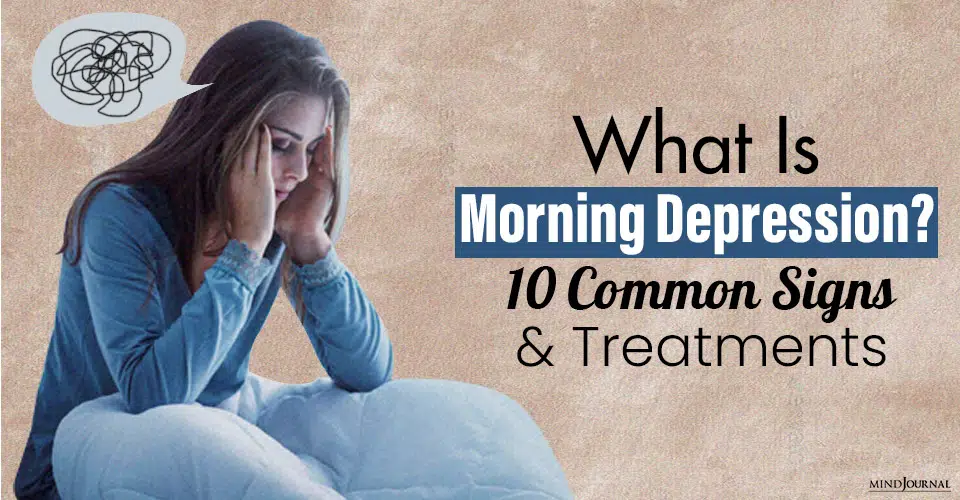

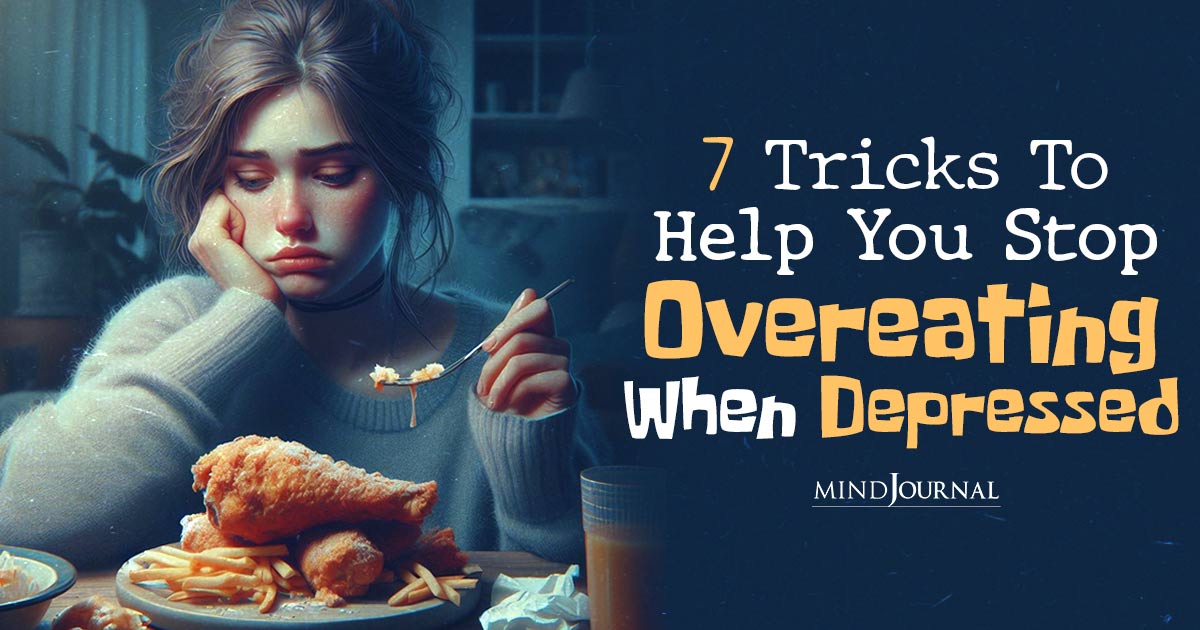
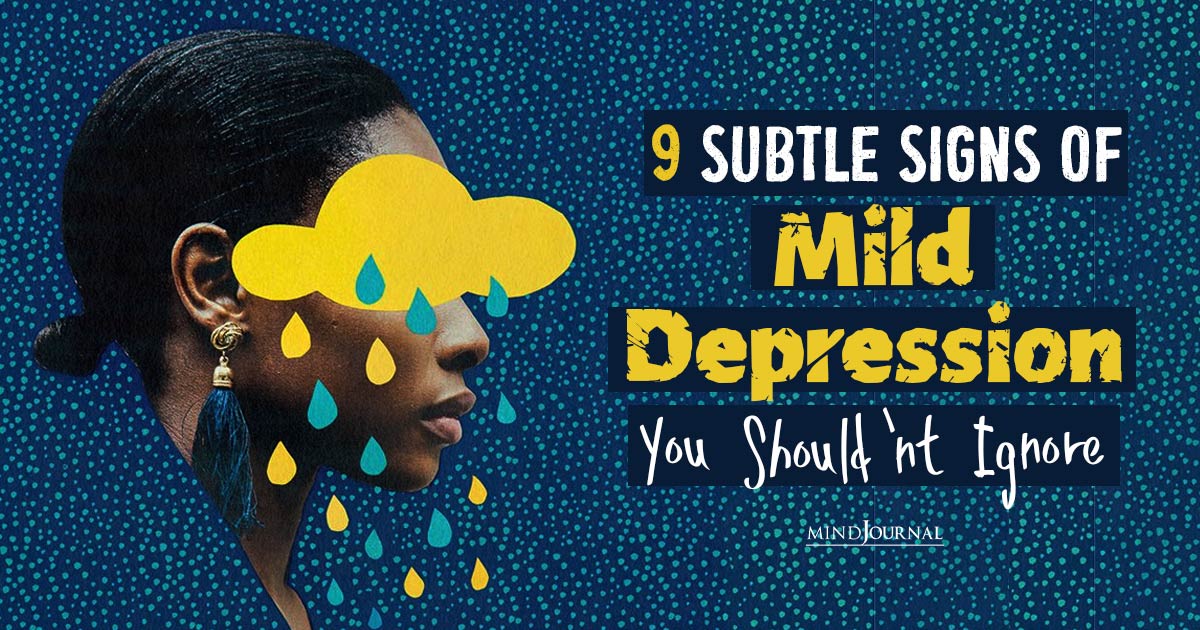
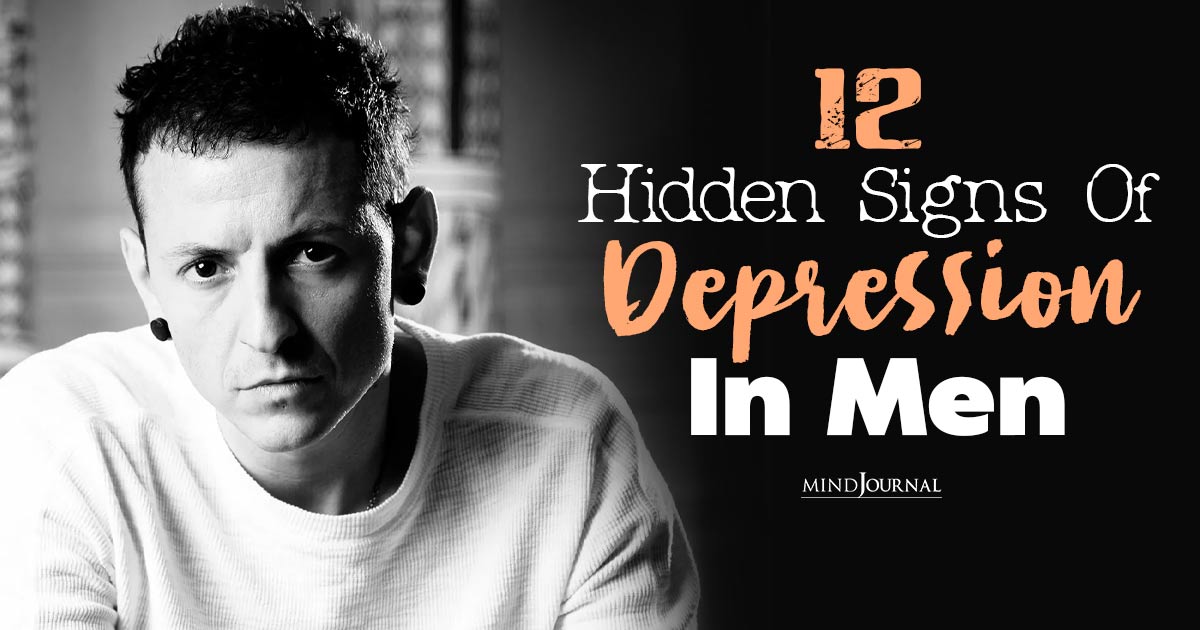

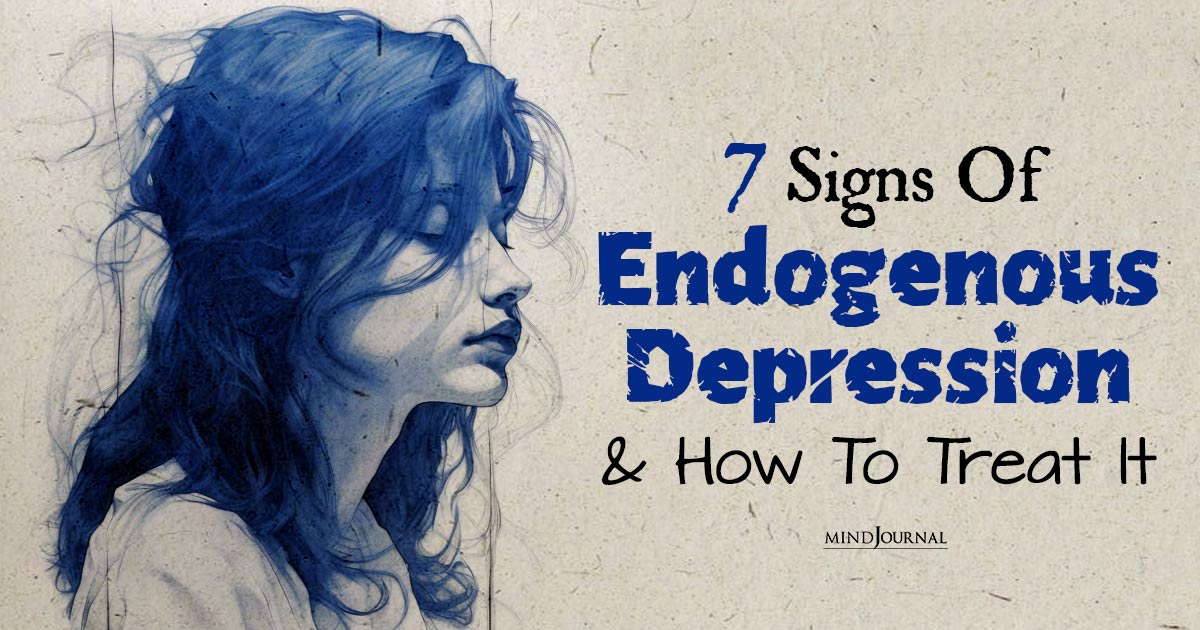

Leave a Reply
You must be logged in to post a comment.